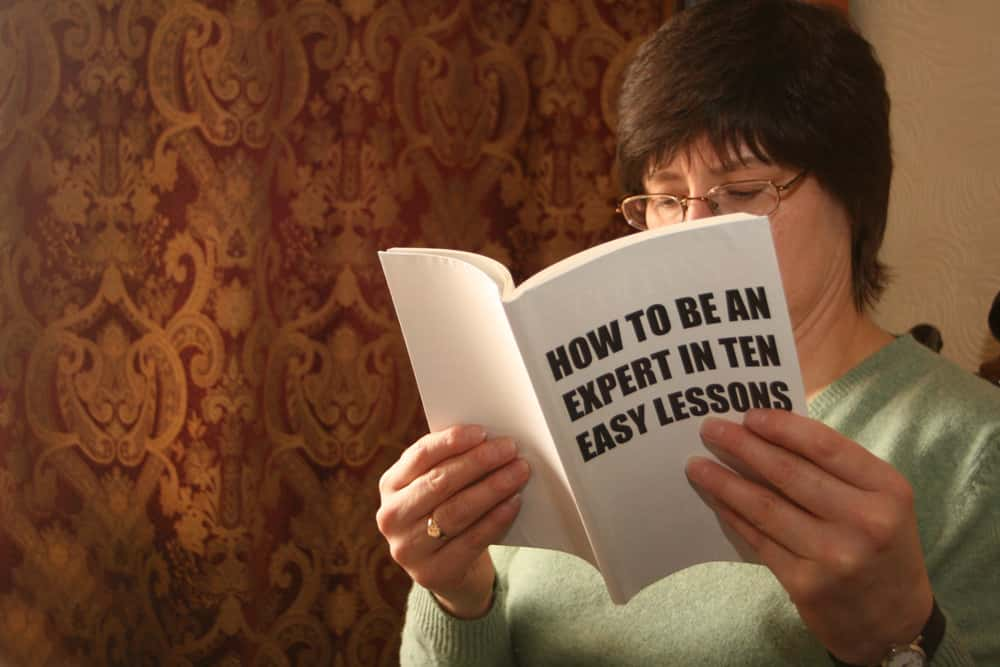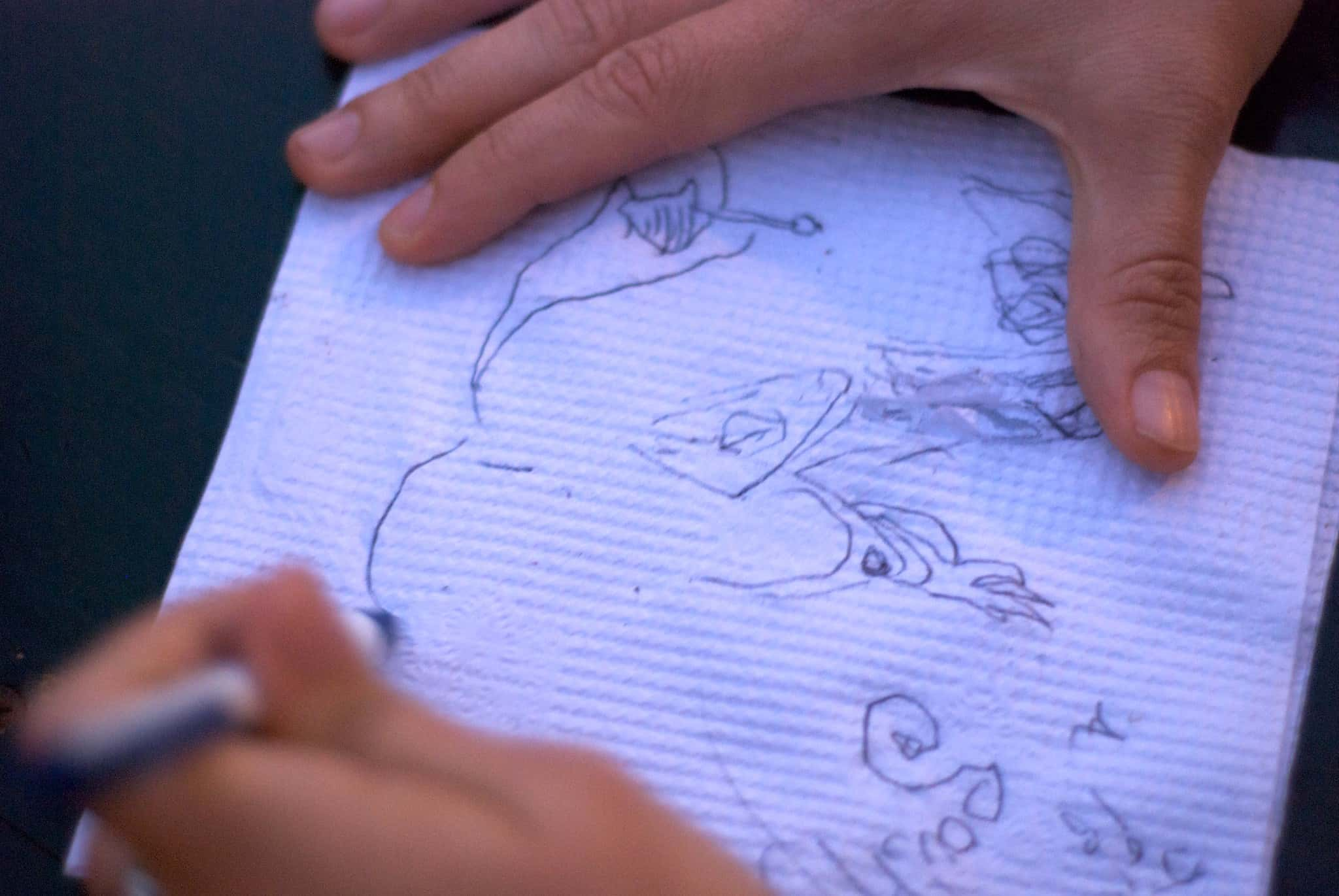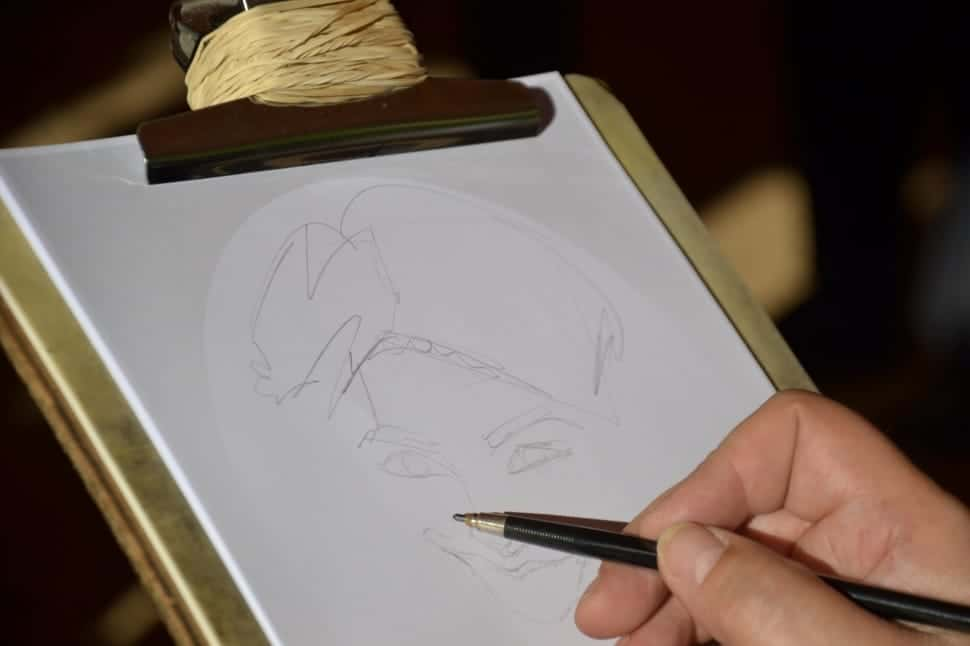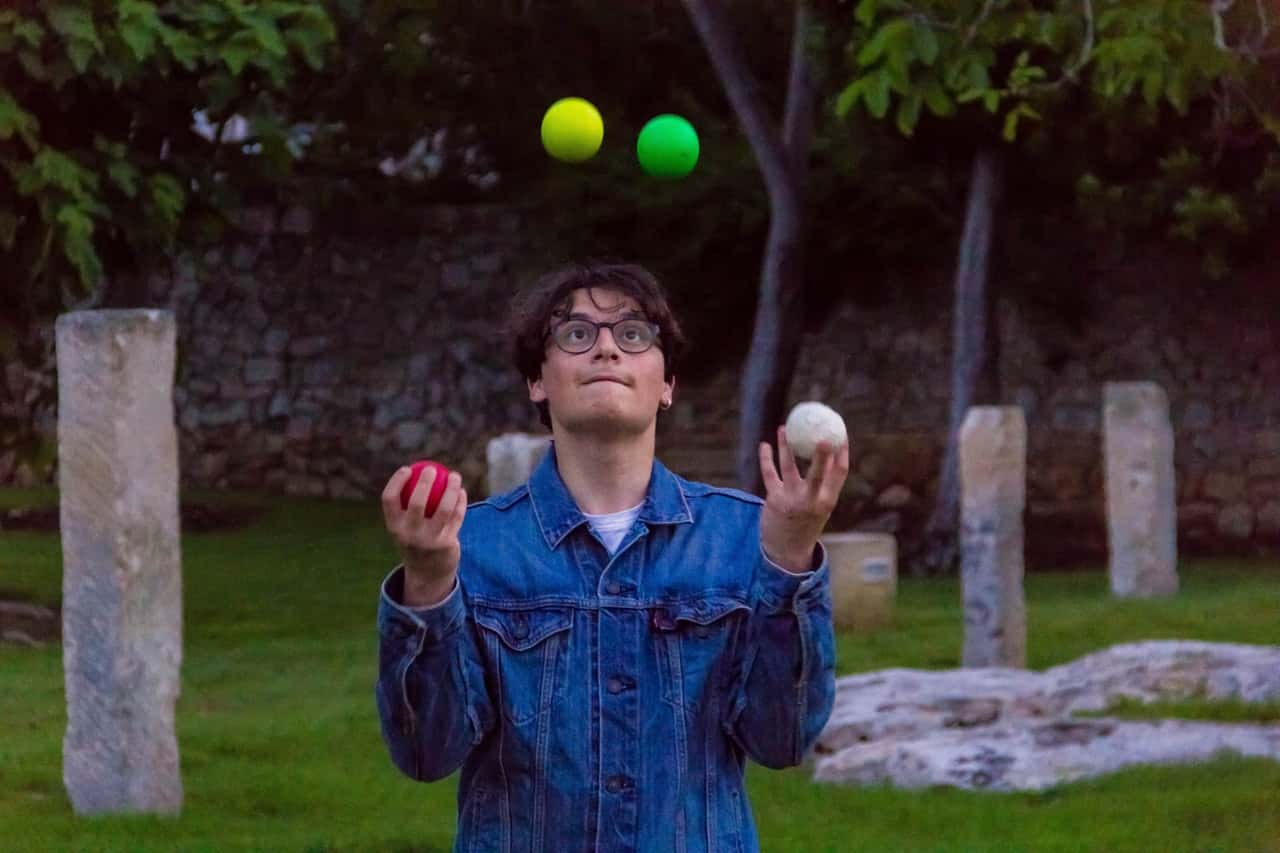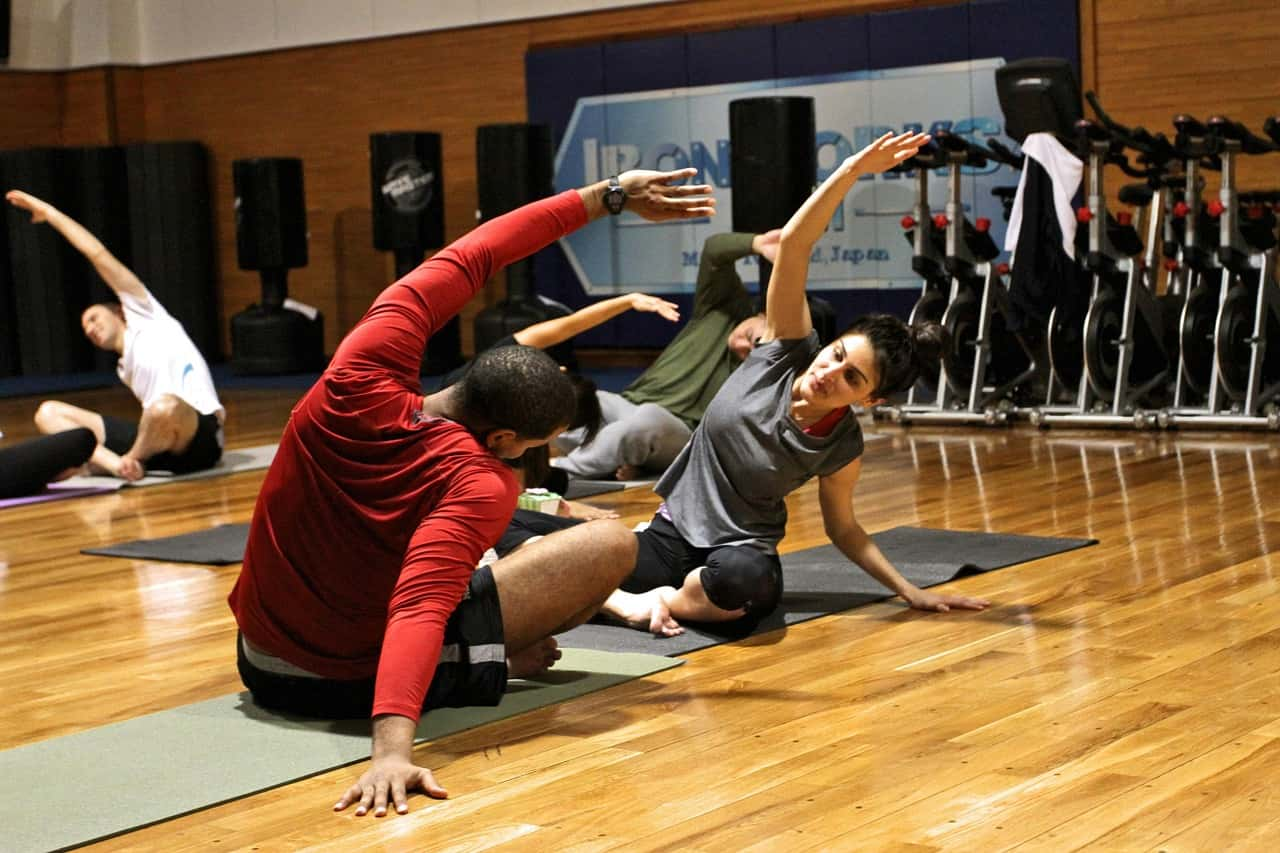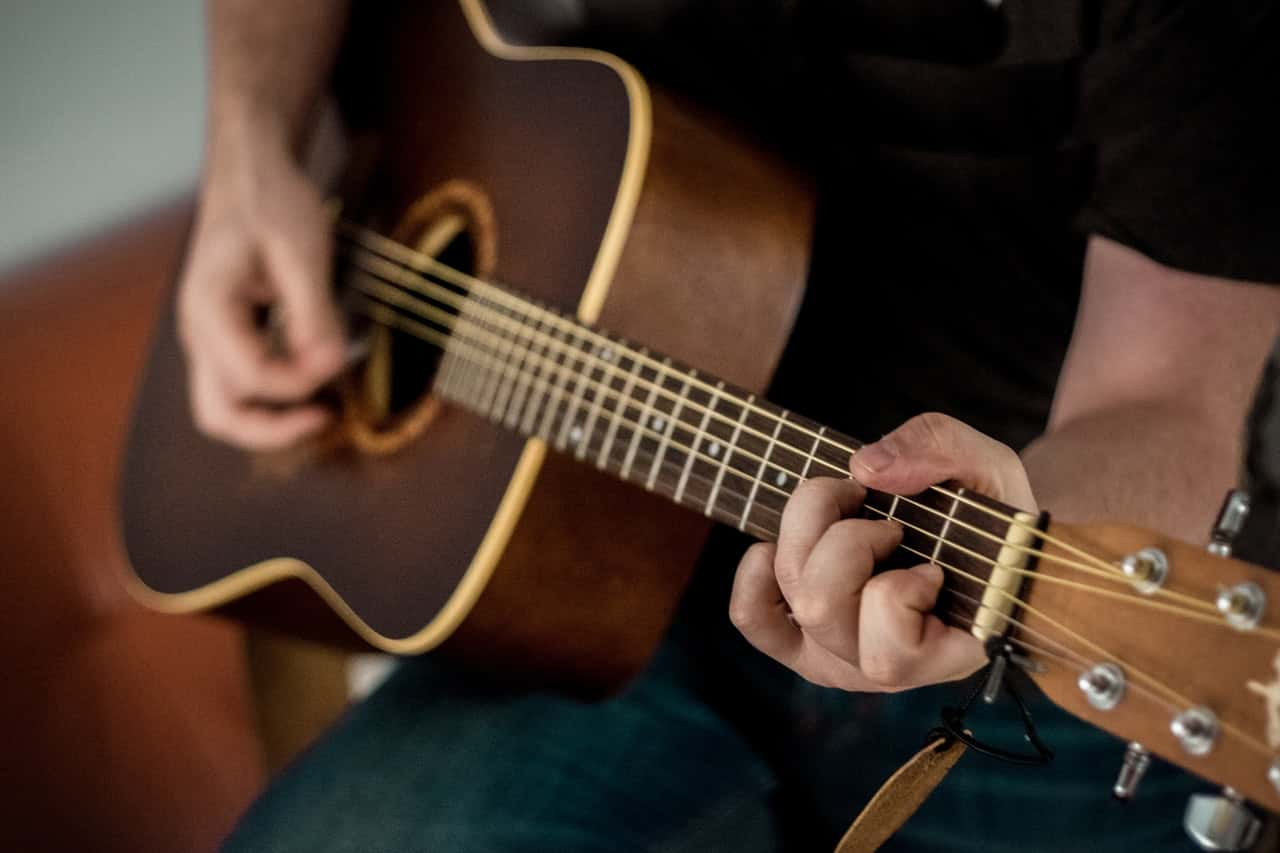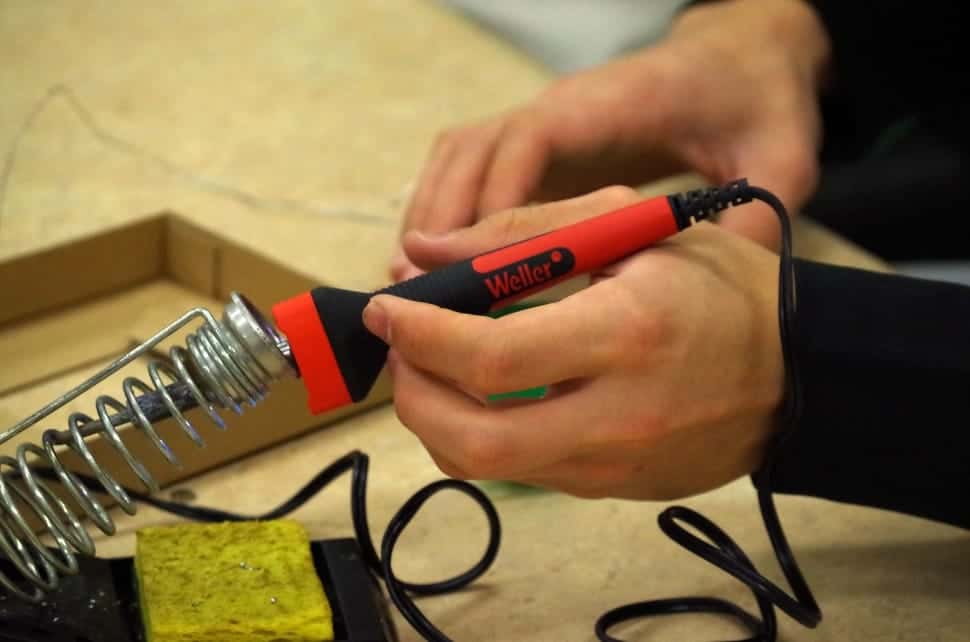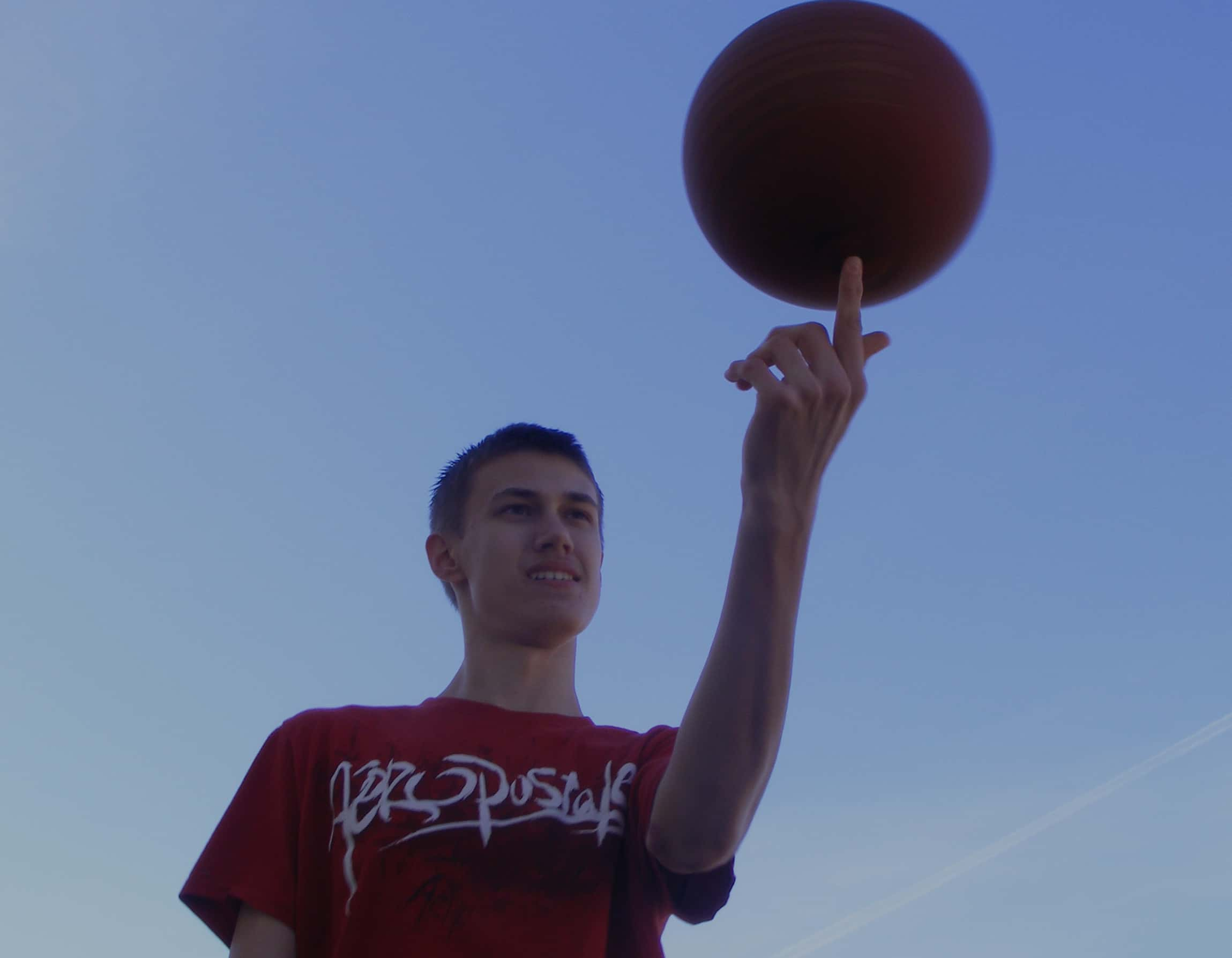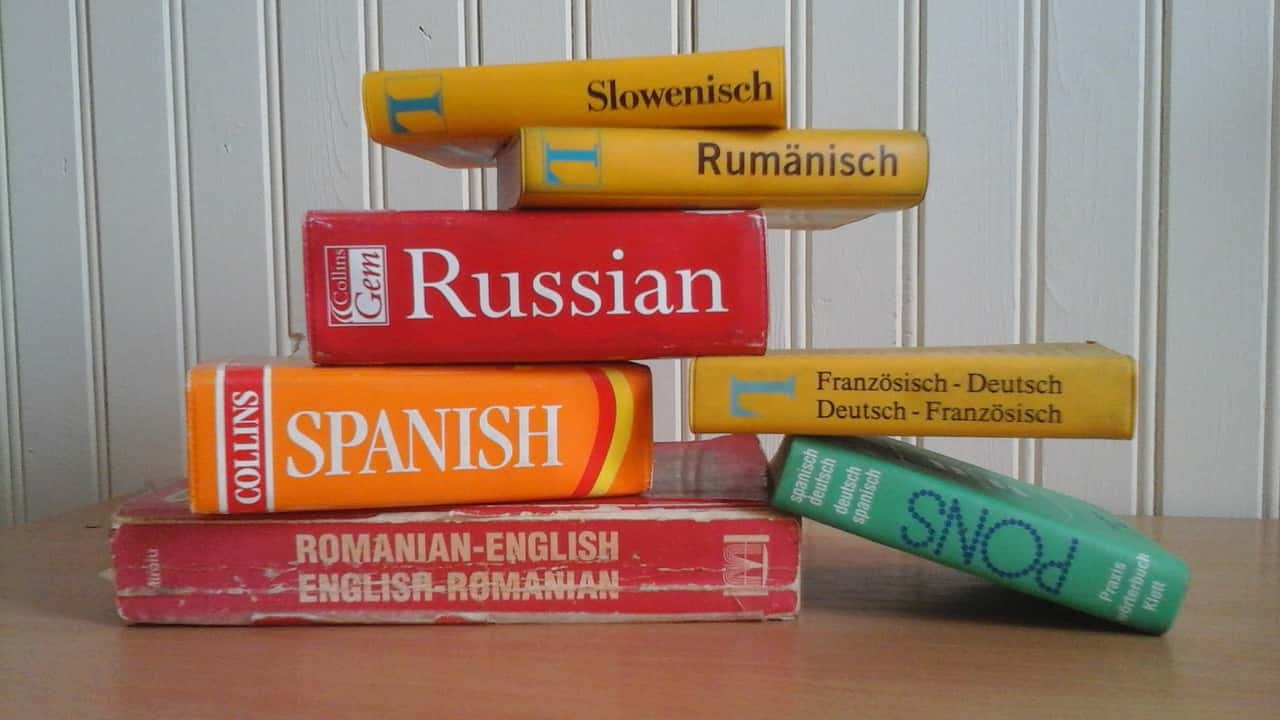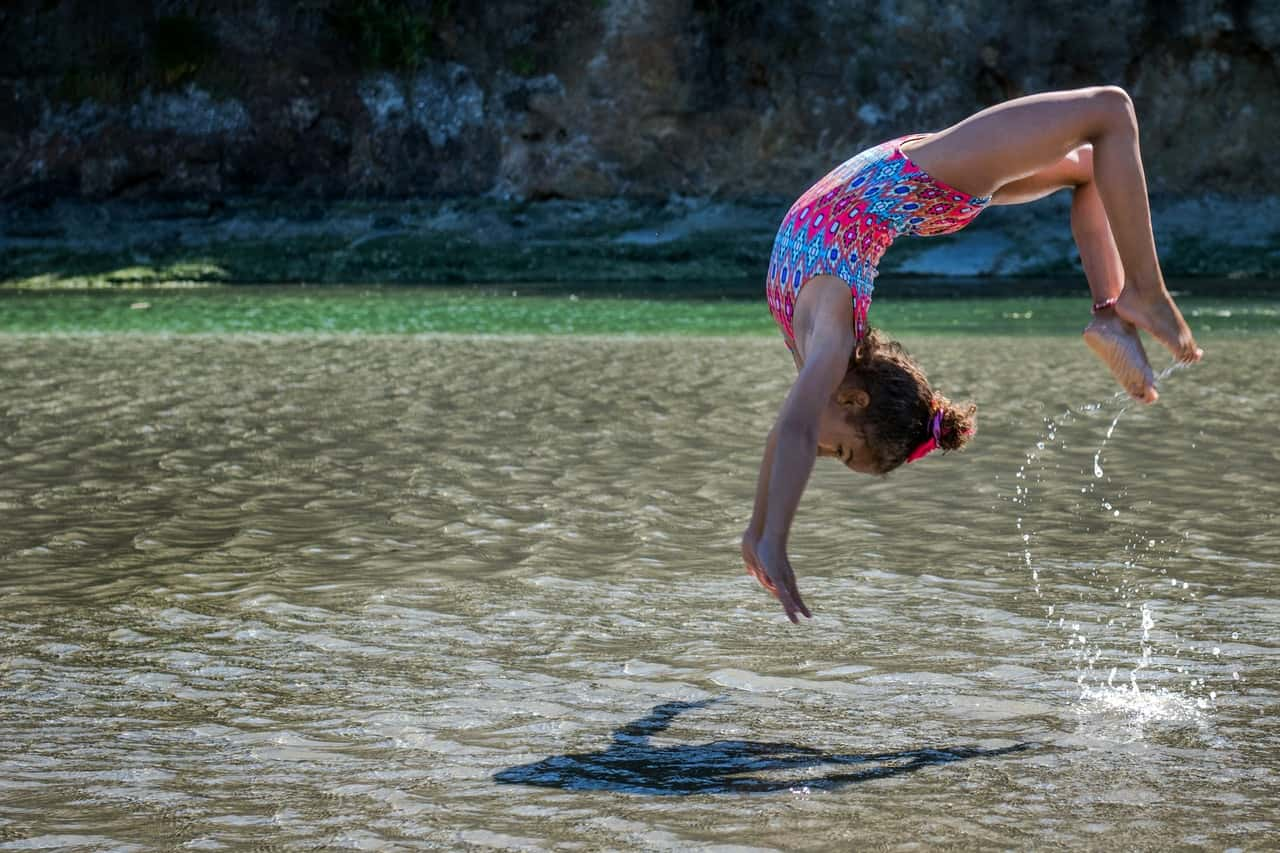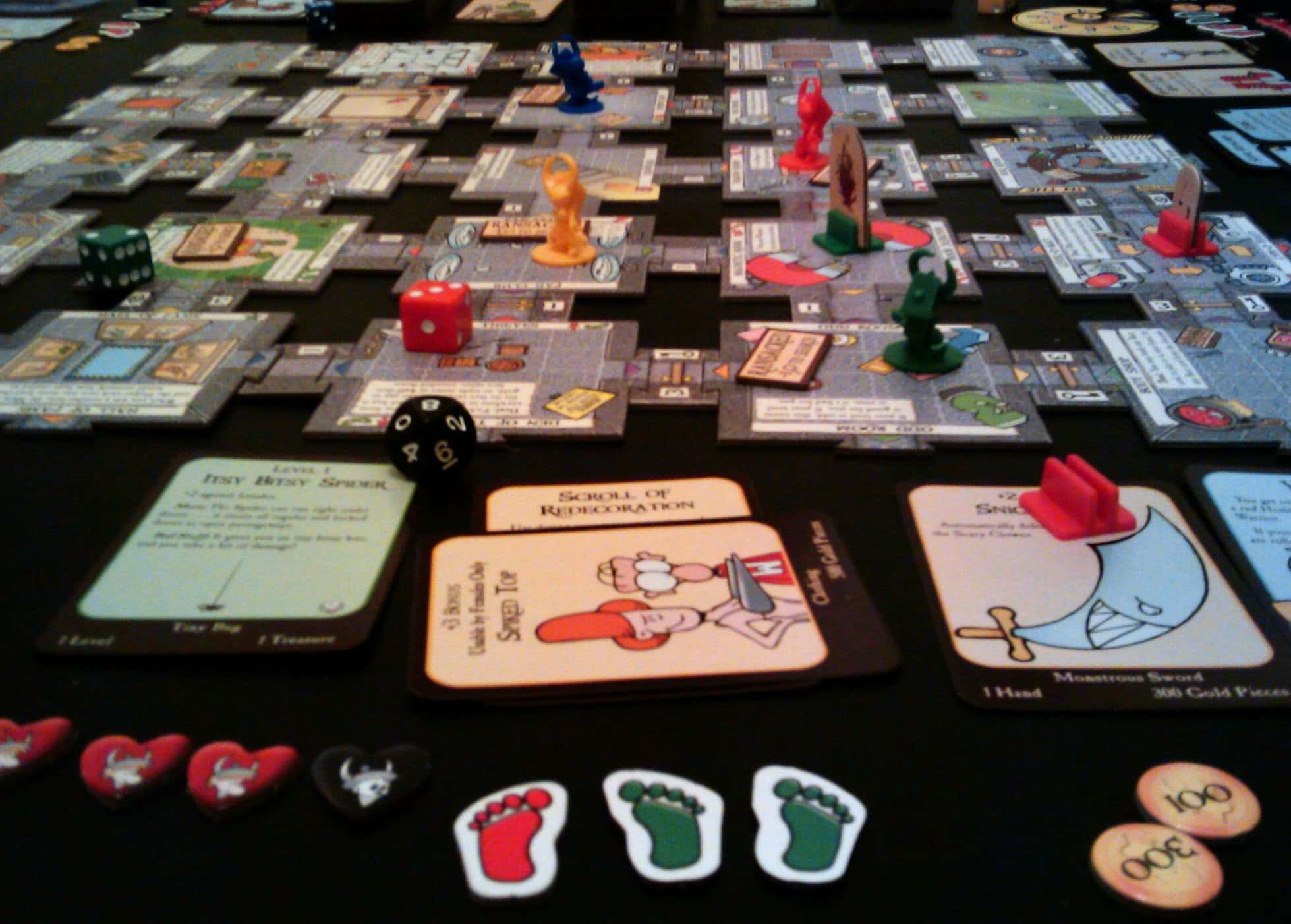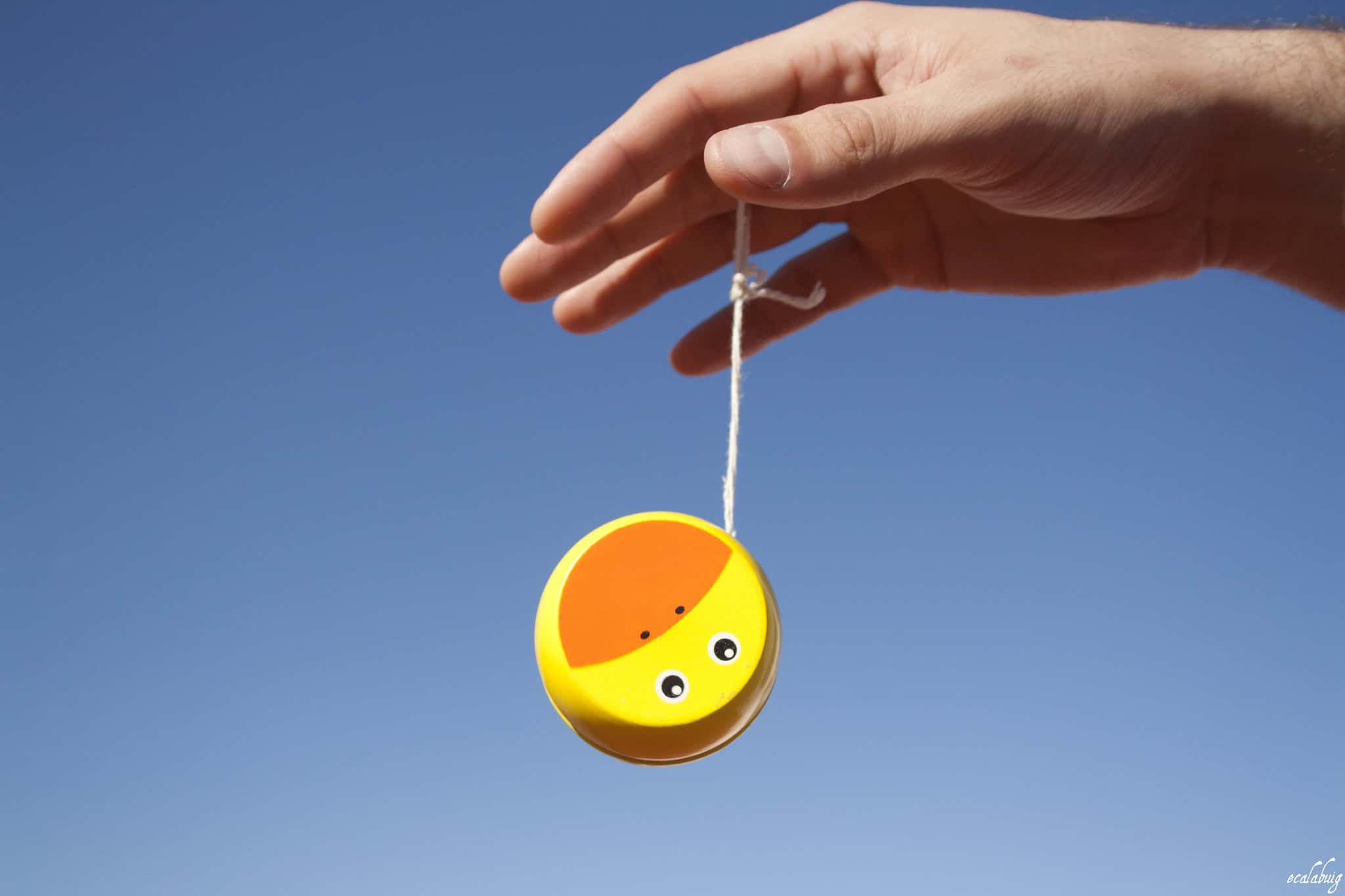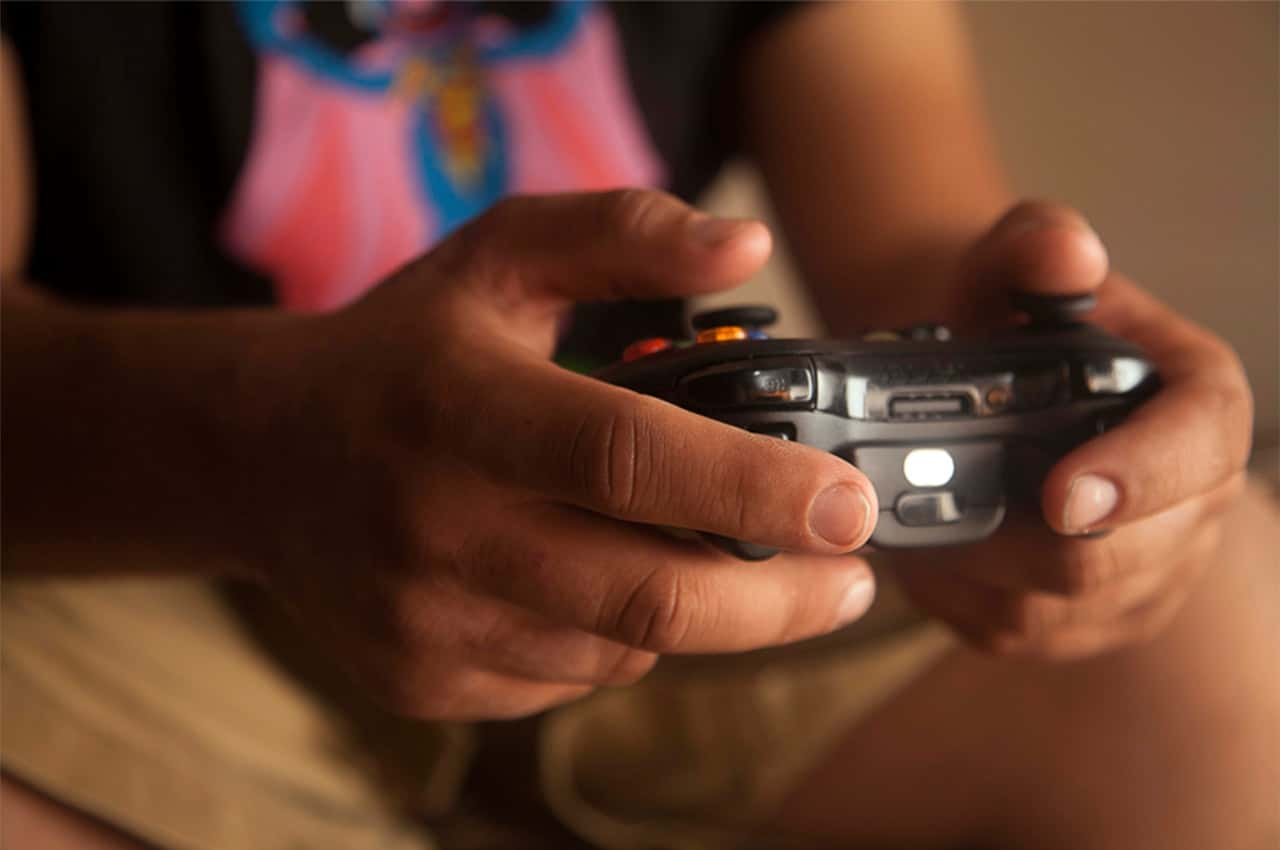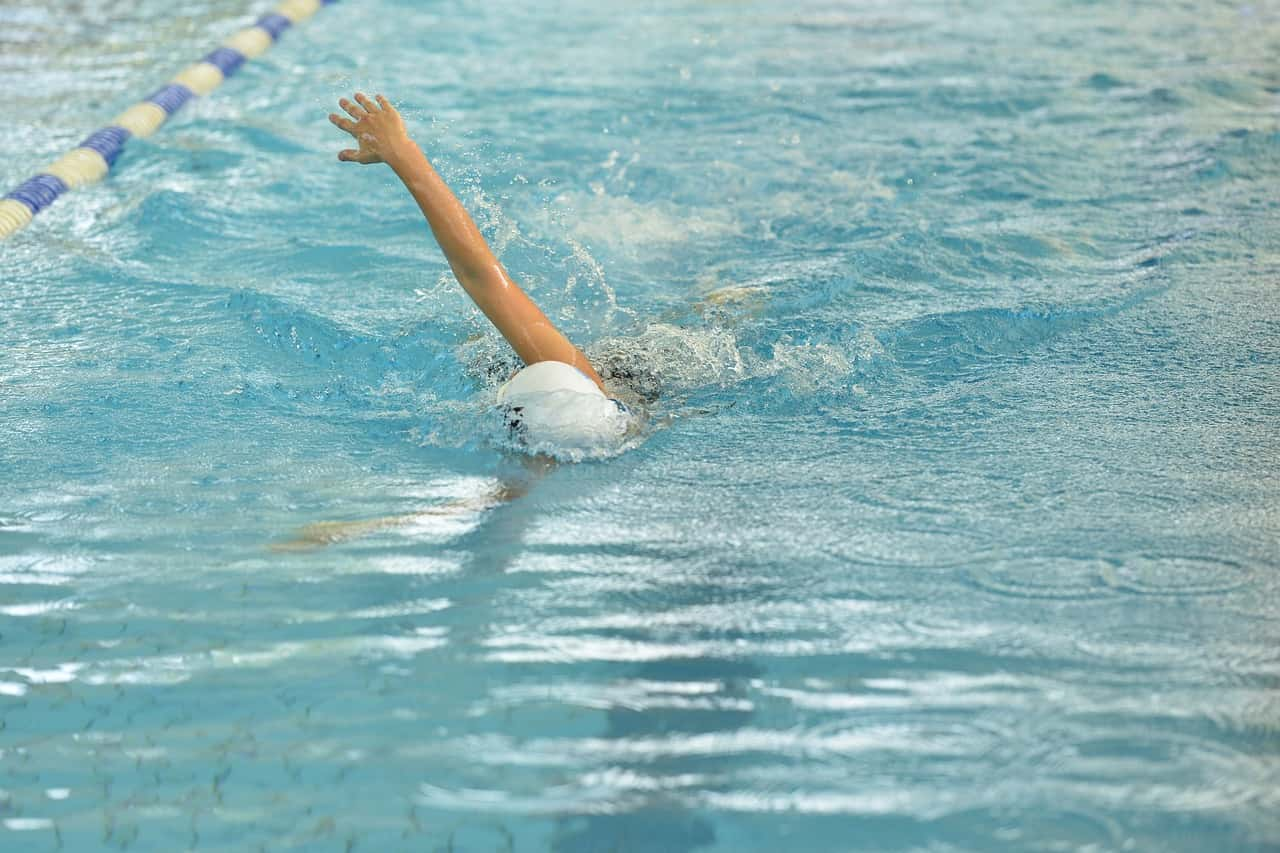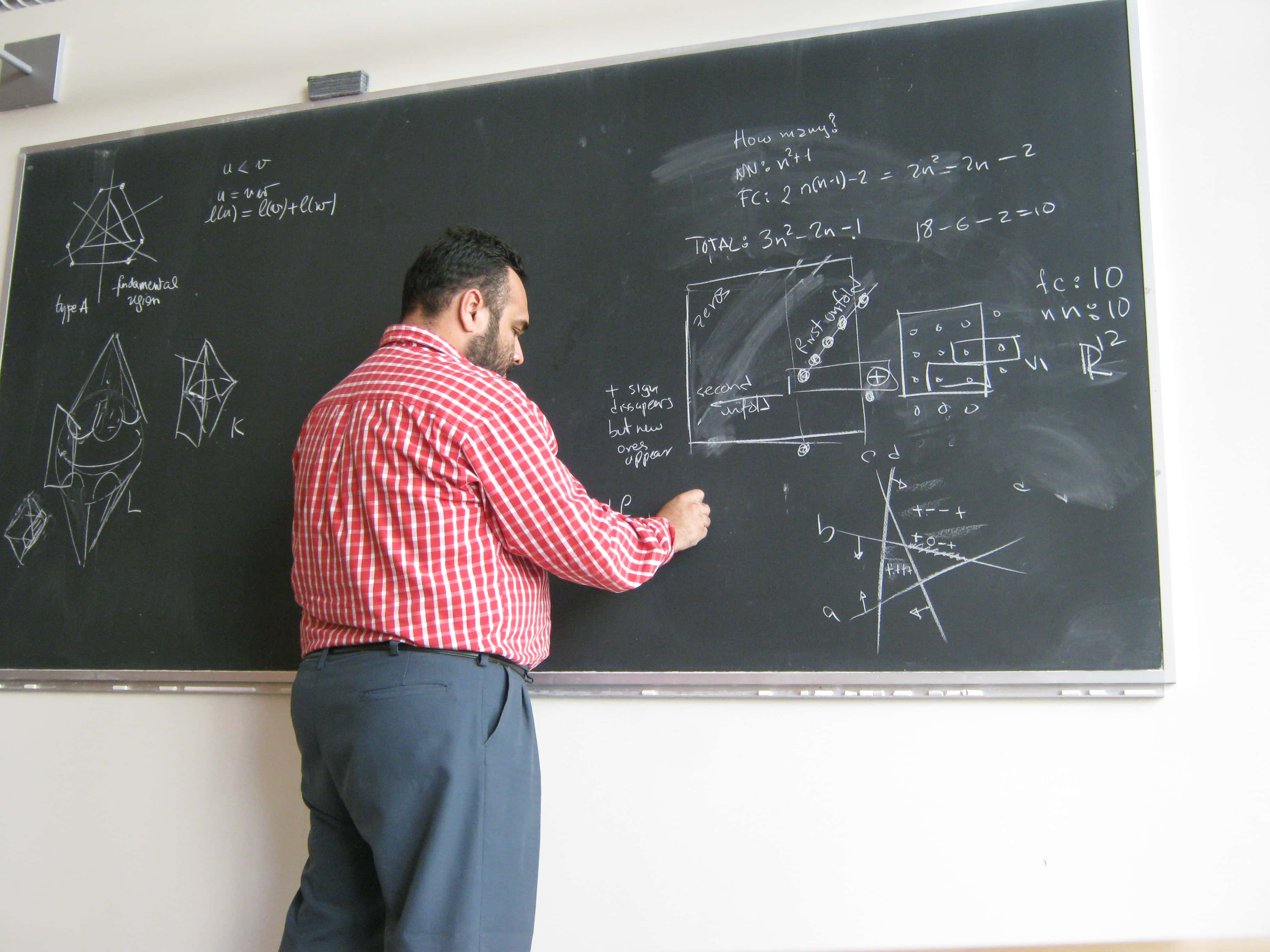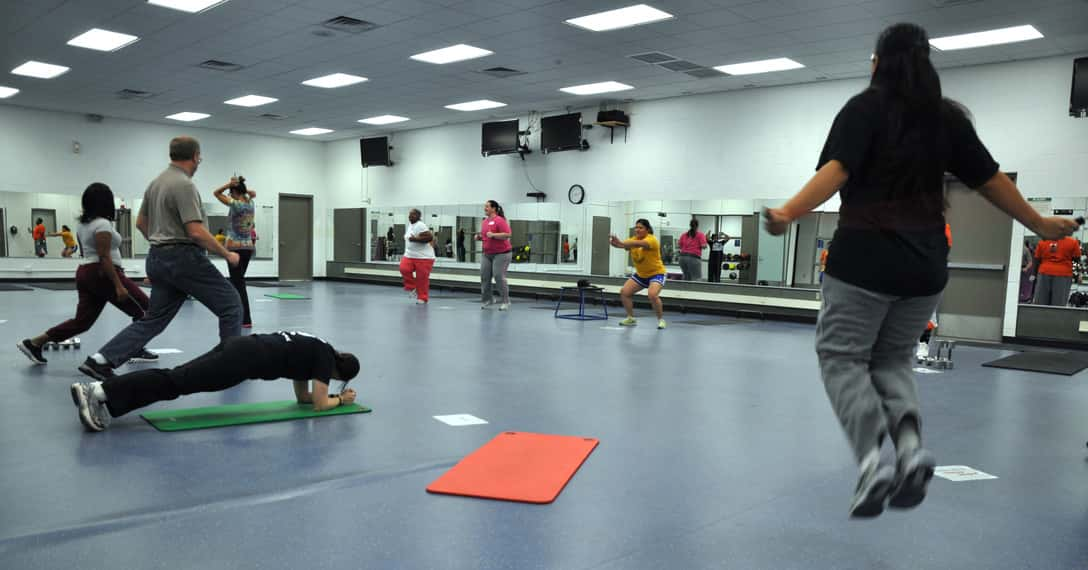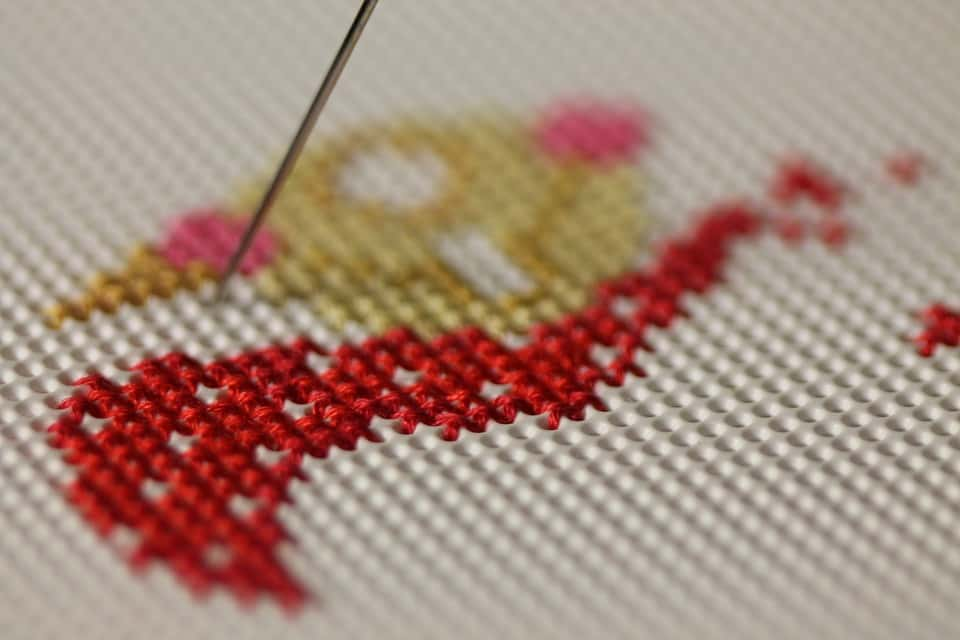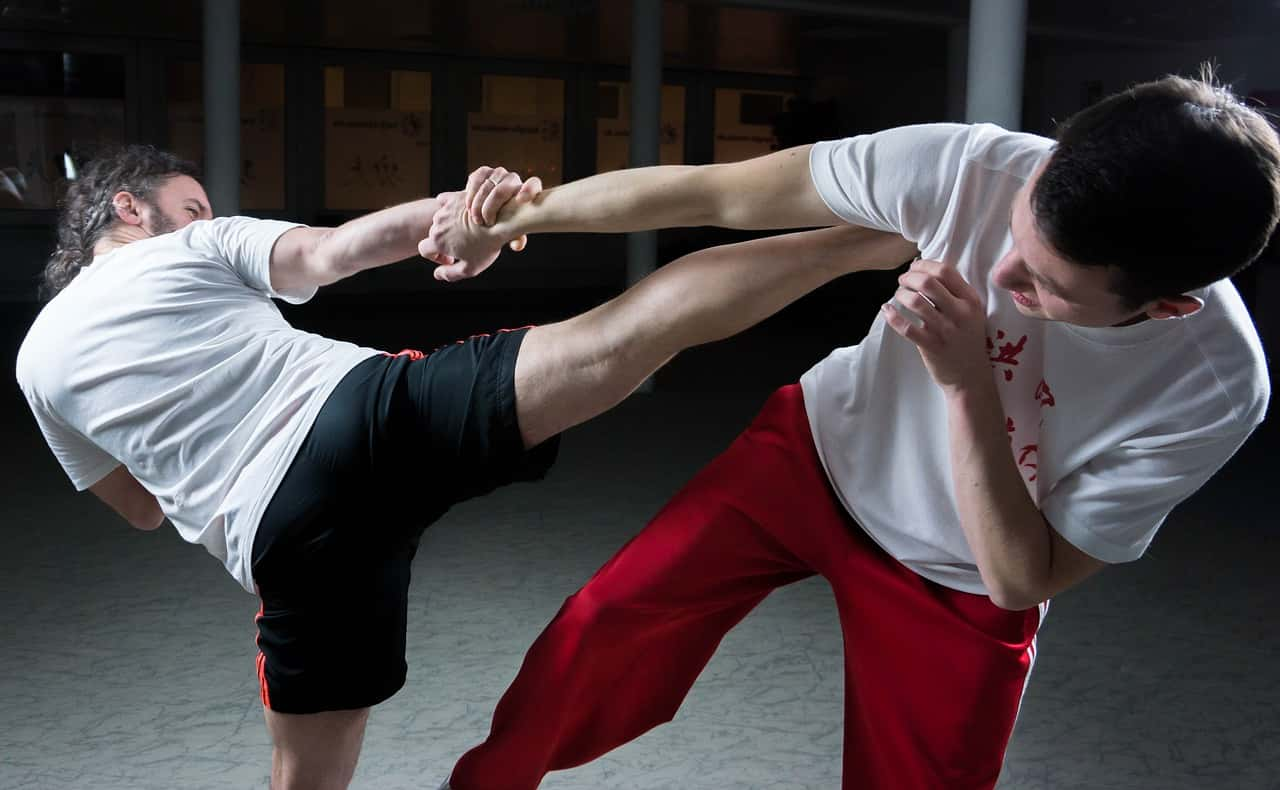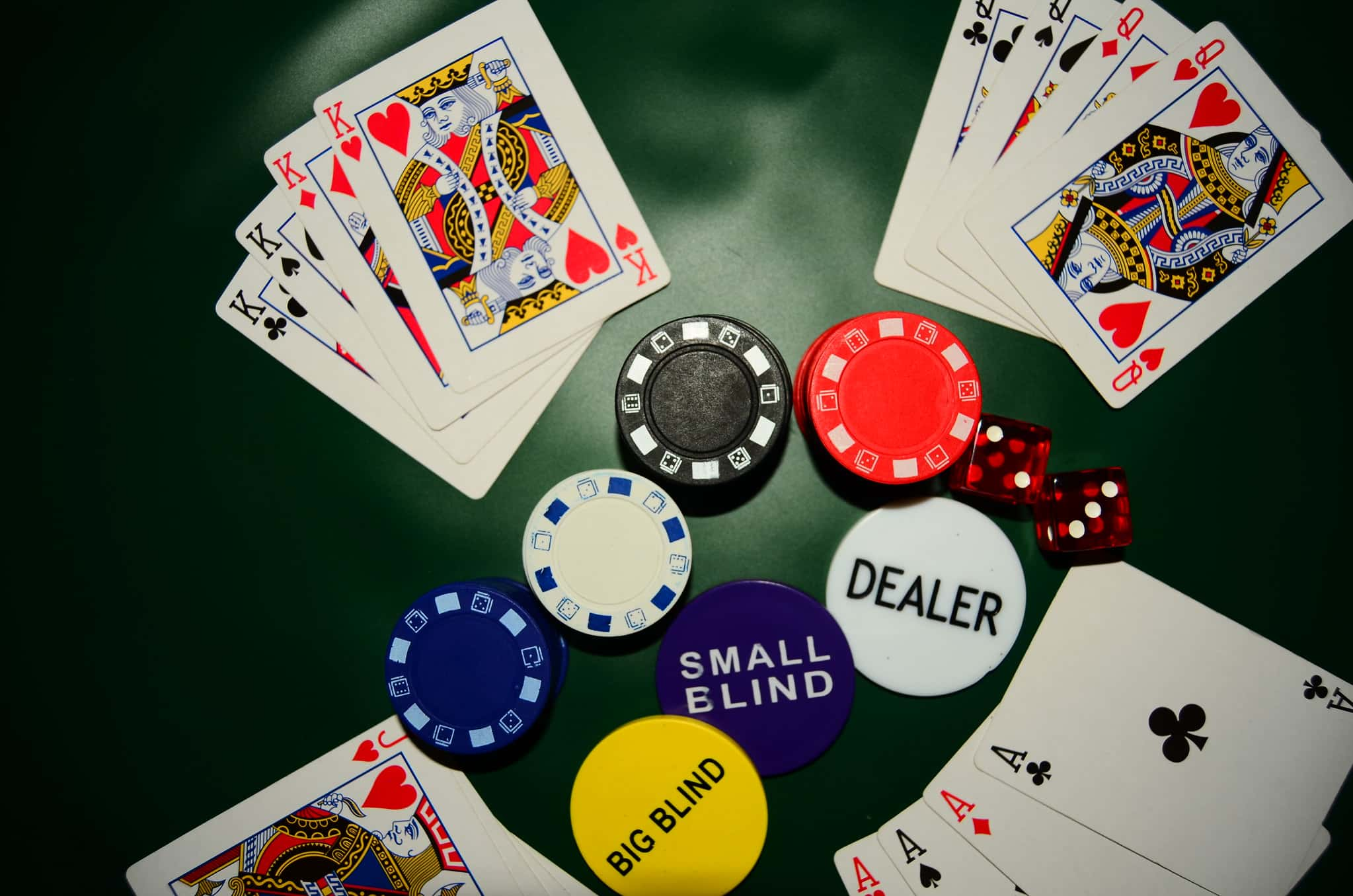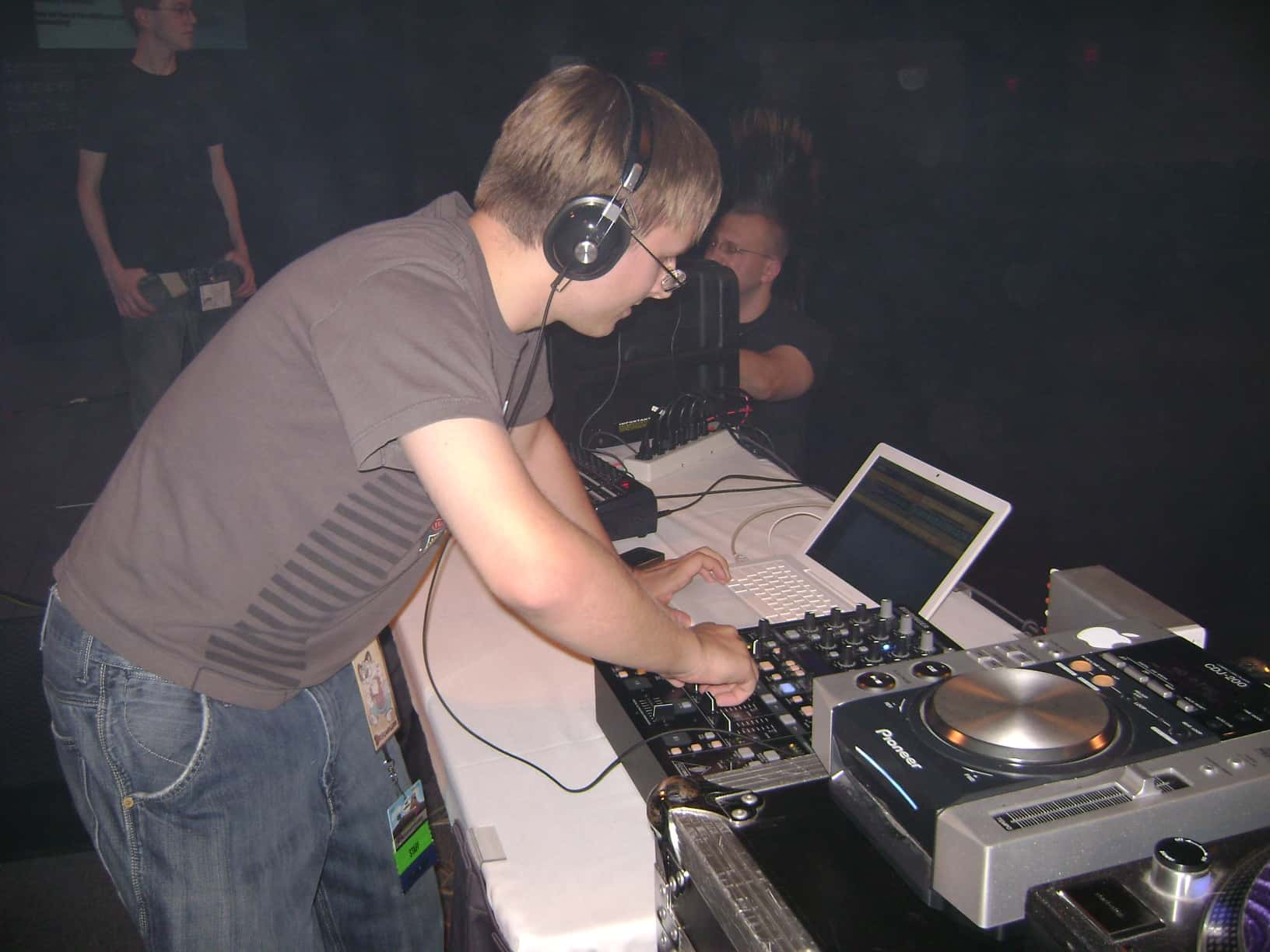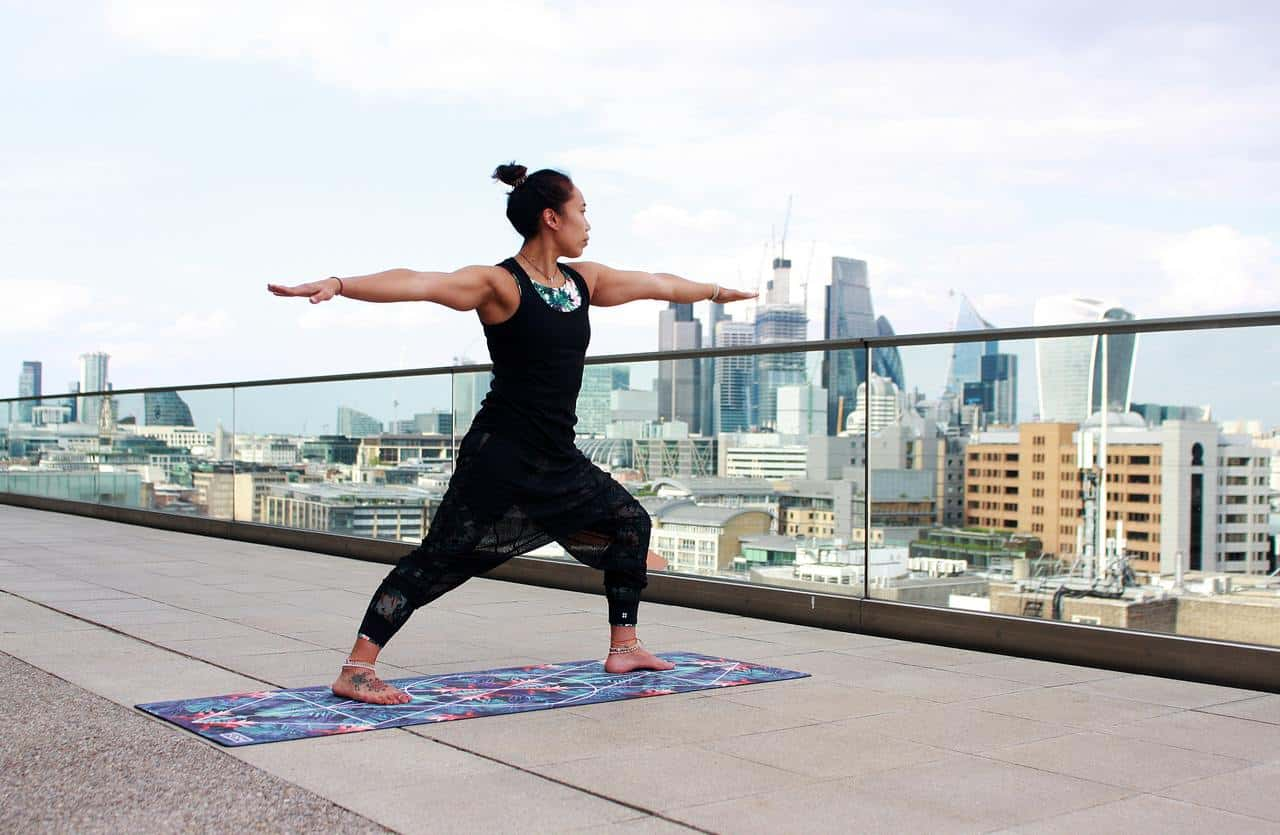How cool would it be to be able to call yourself an expert at something? Generally speaking, most people appreciate variety. They try to dip their toes into new things in the pursuit of being more well-rounded and versatile. Most people would probably agree that it would suck to be a one-trick pony. At the same time, however, most people would probably also agree that it's not enough to simply be a jack of all trades and a master of none. Are there any skills that can actually be perfected with enough practice? People from around the world took to the internet to give their two cents. Do you agree with what they had to say?
Don't forget to check the comment section below the article for more interesting stories!
#1 Ambidexterity
Writing with your non-dominant hand. I started writing with my left hand and doing random tasks with it that I would normally do with my right hand. I’m still a bit more coordinated with my right hand, but I can feel like if I practiced just a few months more I would have complete control with my left hand. Ambidexterity isn’t exactly a skill that’s life-saving or makes you more employable or anything of the sort, but it does help break the monotony of certain activities.
#2 Criminal Skills
Pickpocketing or lockpicking. Though, I learned to lockpick in a single evening. I was shocked by how easy it is! I purchased a set with practice tumblers, starting with 1 pin and ending with 5. I was able to pick every lock in my house by the next day.
#3 The Next Da Vinci
I teach drawing and most of my students improve vastly over the course of a year, just from spending a few hours per week in class. Those who consistently practice outside of class, even just doodling every day, improve even more. I don't think it's something that anyone ever really masters; I've been drawing seriously for about 25 years and I'm still improving.
#4 How Coordinated Are You?
Juggling is something you can get very good at with a year of daily practice. I was really into juggling as a kid. Juggling three balls takes maybe a weekend to learn. Juggling four takes about a week or so. Juggling five took constant practice and I don't think I ever got above 30 throws. You also lose the skill incredibly quickly for five balls. Even if I haven't juggled in years I can still bust out three-ball juggling tricks, but you have to constantly practice with five balls or your coordination deteriorates.
#5 Get Active
Exercise. I used to work out three hours a day, four to five days a week. I kept that up for about two years straight. But for the last nine months, my job has me exhausted at the end of the day, and I just don't have the energy to go to the gym. I don't think I'm out of shape quite yet, but I am definitely in the worst shape I've been in in the last five years. Though, I truly believe, with consistent practice and routine, you can really transform yourself.
#6 Guitar Loophole
Probably playing four chords on a guitar. You’d probably be an expert at that in 365 hours of practice. The secret is, about halfway through, you stop strumming and just start tapping on the body of your guitar to the beat. And if you're feeling particularly brave, you can encourage the large crowd gathered around you to sing along then just stop singing entirely, letting them do all the work.
#7 No Musicality Required
Honestly, any instrument. You wouldn’t be an expert, but an hour of consistent practice every day would build up the areas of the body needed (diaphragm, callouses for guitar players, bottom lip callouses for sax players, etc). You'd get a solid understanding of your instrument. 365 hours of purposeful practice will get you easily to the point of being able to whip out your instrument and impress friends and family.
#8 Stenography Pro
Typing. Professional typists are roughly 70-80 wpm, easily accomplished through daily practice. I've been learning stenography for a few months which can get you up over 200 wpm with perseverance. If after a year I can match my QWERTY touch-typing speed of 75 wpm, I'll be stoked. 100 is the goal but it's difficult. Five months in and I'm hovering around 30-40 wpm.
#9 Acquired Talent
Probably dancing. A lot of people think it’s a talent you’re born with such as being able to match pitch versus being tone-deaf, but I used to think I sucked at dancing until I tried it. Learning choreography is fun.
Sign Up For Our Newsletter
Stories that matter — delivered straight to your inbox.
#10 Solving The Cube
Rubik's Cube. From someone who has a friend who does that about an hour a day, he can now solve the 21-sided monstrosity he bought for like, 50 bucks.
#11 Circuit Wizardry
Soldering. If you had new components and new techniques to practice every day, and you actually soldered for an hour every day, you'd be a freaking wizard by the end of a year. You'd also be hugely in debt to just pay for all the tools and parts, but hey; nothing ventured, nothing gained.
#12 Small Skills
I think this applies for small skills only. From my experience, an hour a day will make you an expert in spinning things on your finger. I can spin nearly any relatively flat thing bigger than a tablet as long as I can stand it's weight, laptops, notebooks, suitcases, ceramic plates, cereal boxes, pillows... You get the idea.
#13 Advanced Tetris
Tetris. If you want to get good at Tetris, an hour a day only takes a couple of months at most to get decent at the game. Mastering more advanced stuff like spins and whatnot would take six months or so, but I doubt it would take an entire year.
#14 It's Not That Simple
Definitely not language. 365 hours will make you a high-level beginner or an early-level intermediate at most. And that's just for the “easiest” languages—365 hours for some of the highest difficulty languages will get you just the understanding of how it even works. I LIVED in another country for a year, practicing language daily for well over an hour by necessity and I'm still very far from an expert.
#15 Spreadsheet Competency
Using Excel. It would also be absurdly useful for many of us. As for a single skill and its potential to make the most amount of people "worth" more in the job market, I can't really think of a higher return on investment.
#16 Hard Work Pays
Server work, I have been doing server work for Minecraft for about a year and if you looked at my progress, you would see I went from watching YouTube on everything to knowing how to do it all with very little online help. Hosting servers for money means you need a beast computer and hours of work a day, however.
#17 Quick Language
Esperanto. The language takes only 100 hours to learn all grammar and such. It's also fully phonetic and has no exceptions at all, ever. If you ever need to know a word, you only need to look it up once to know how to use it perfectly. I have no clue why there aren't more people using it, especially in Europe or Asia.
#18 Gymnast Ambitions
A backflip. A spotter is important, though. If you’re small and your spotter is strong, they can grab you by the back and knees to literally flip you over in the air. More commonly, however, a spotter just gives you a boost upwards right when your back is parallel to the floor. This gives you more height (and time) to complete the flip before the landing.
#19 Slice And Dice
You can beat Saber. That's actually my goal. It's been a month so far and still going strong. I’ve had my Quest for two months and just got an S on an Expert+ track for the first time. I love this game.
#20 Run, Run, Run
If you run an hour every day you'd be amazing at running. But running for an hour every day is so hard on your body. Putting that kind of mileage on yourself especially as a beginner runner is probably a bad idea. You have to step up incrementally. Also, part of “practicing” running is resting properly. If you don’t give your body efficient amounts of rest then, unfortunately, you’re not becoming an expert.
#21 The OG Fidget Spinner
I have been practicing yo-yos for 30 minutes to an hour a day since June of last year. I'm nowhere near an expert or even any good yet, though. Mainly because the entire sport is based on muscle memory. Even the pros have spent countless hours on the same trick even doing it successfully over and over and over until you feel absolutely confident in it like it is second nature. Otherwise, your tricks will look steezy as heck. My current trick fixation has been the "Matrix" and "Matrix Rewind" and the "Eli Hops" tricks. Have probably practiced these same tricks now for at least a few months so far.
#22 Be One With Yourself
Meditation. For me, a good meditator is really skilled at keeping his or her mind clear of thoughts. This is extremely hard to achieve because we are not really used to think about "nothing." After a year of meditating an hour a day already have radically improved your life, health, and sensibility. Even 10 to 20 mins a day can make a significant difference.
#23 Barista Goals
Pouring latte art. If you actually practice for an hour every day for a year you'd be pretty good at it! In well under a year I was making those 3D foam animals (kittens, bunnies, etc.) that look like they're peeking out of the cup. Never underestimate the boredom of being a new barista and what you can pick up if you have the time.
#24 Chopsticks
Using chopsticks. Easy. You could master it after a year. I've been using chopsticks for as long as I can remember. I don't recall a tough learning curve, but start with sushi rolls then work your way down to smaller things. I've been eating rice with soy sauce so it's not really sticky. I actually prefer the sticks. It keeps me busy no doubt but I eat chew swallow in a pretty much constant motion.
#25 Practice Makes... Money
You wouldn't be an expert, but if you spend an hour a day learning programming, and spend the time well, you'd certainly be employable, and jobs in the tech industry are pretty great in my experience. I've never worked on a weekend, I work 40 hours a week at an absolute maximum. I'm generally treated pretty well. There's lots of money flowing around, lots of free lunches, lots of side benefits and perks.
#26 Rule Of Button Mashing
A good rule of thumb in my experience is that it takes around 4,000 hours of practice to become an expert in something. There's a reason why we call them "experts"— the title doesn't come cheap. A good example is competitive gaming. Programs like Steam keep track of your hours. Basing myself on personal experience (having wasted my own adolescent years grinding away at FPS games), most expert gamers would have had at least 3,000 hours of experience for the talented ones (often more for professionals), with most reaching 4,000 to 8,000 hours.
#27 Just Keep Swimming
Swimming. I went from not being able to float to, in a month, swimming the length. If life hadn’t gotten in the way, I probably could be making better progress. There's a guy in my building who looks to be in his mid-20s and is always embarrassed when he gets in the pool. He's learning to swim. As an old dog reluctant to learn new tricks I have a ton of respect for him. He's giving it a real effort.
#28 A Numbers Game
To be honest, math. No one’s expert in math really, but assuming you have basic knowledge in algebra, one hour for a year can get you up to speed in calculus and statistics, which is pretty much all you need in life.
#29 Ditch The Traffic Cones
Parallel parking.This seems like it takes far fewer than 365 hours to master. With my kids learning to drive, I just had them drive us into the city in the early morning. We started off backing into very generous spaces (two car lengths) and then we would drive around looking for less and less generous openings and narrower or busier streets. Basically, two days of this (with a little refresher right before their test day) seemed to pretty much cover it. I thought this was much more effective and 'real world' than setting up two traffic cones in our quiet suburban street.
#30 Good Cardio
Jump rope. It's my go-to cardio and I do 15-20 minutes every day with one-minute breaks between every four to five minutes.
It's very fun—I can do it at home, and you can get a decent cheap steel speed rope from Amazon for under 20 bucks that you can probably use for at least four to six months before the rope gets sort of bent or damaged.
I'm not exactly sure about how long it would take most people to learn proper jump rope technique and form, but most should be able to hit their first double-unders after two months even if they only started doing five minutes a day.
I really recommend jump rope for people who want a fun and convenient way to get some regular exercise, with many tricks to learn as well to switch up the routine or make the routine more difficult or challenging.
#31 Easy Transition
Ukulele! It's such an easy and fantastically entertaining instrument. I played guitar for a couple of years and when I was like 17, I wanted a uke and got one for Christmas. Literally, within a few minutes, I was playing songs on uke that I knew on guitar.
#32 Voice Chameleon
Different accents. The amount of humor you can get from scammers when you answer "Xavier's School for Gifted Children, Colossus speaking" is phenomenal. Just pick an accent, then look up movies, TV shows, and interviews of people who have that accent. I'm currently working on an Irish one.
#33 Practice Positivity
Saying nice things to people. I know everyone can say nice things, but really, it’s kind of hard when things are going bad. I’m a pretty up and down normal person but it feels a lot better for me when I say good things and not evil stuff to people. Do that for a year and it might change your world.
#34 Human Soundbox
Beatboxing. It’s surprisingly simple to pick up and, so long as you have an effective practice routine, you can get good very fast. There are hundreds, maybe thousands of beatboxing tutorials on YouTube. A quick search will get you some good results. Also, to understand what it is in its full art form, I strongly recommend watching the Grand Beatbox Battle 2019 solo eliminations and battles.
#35 Portable Talent
Harmonica. Just don't allocate your hour late at night and you'll be good. Also, some music talent is needed for this. You can also carry it with you and practice on the go. You'll get some weird looks, maybe some confrontation (your mileage may vary).
#36 Passing The Time
Cross-stitching. I bought a really big, childlike piece with an enormous grid to see if I liked it. Halfway through it, I tossed it for an 18-count flower fairy with french knots and all. Never looked back, I love it so much!
#37 A Modern Shakespeare
I've been seriously writing almost every day for almost five years now, and while I'm certainly better at the technical stuff and at plot creation, I still consider myself average at best when it comes to crafting interesting themes and well-rounded characters. I knew that it was going to take a long time to refine my writing, so I'm not discouraged but that fact.
#38 All That Runescape Paid Off
Blacksmithing. Been doing it for an average of an hour a day (several hours at a time, a few days a week) and I'm definitely seeing improvement. But I've also seen every episode of Forged In Fire so like, I'm pretty much an expert anyway.
#39 Control Your Dreams
Lucid dreaming. Tip: Use a sleep tracker to find out when you are in REM. (For most people, this is around 3:30 am). Set an alarm for that time (on my Fitbit I have a silent alarm that buzzes me awake, so I don't have to turn off an alarm, but do what you want.
You will wake up and fall back to sleep so quickly you won't even remember it. The only reason I know is by looking at my sleep tracker to see if I am awake. When you fall back to sleep, it will be even deeper and allow lucid dreaming.
As you go to bed, set a conditioning routine. Every time I try to lucid dream, I tap my two fingers on my right hand (middle and index) as if they are playing piano on my pillow next to my head. I also whisper 'I am going to have a lucid dream' over and over again, in a rhythm with my fingers.
Experiment, and find what works.
#40 Human Clock
Being able to judge when exactly one hour has passed. I used to work with this old German guy, Reiner, who didn't wear a watch because he could 'guess' the time with an accuracy within 15 minutes. He didn't have a cell phone because he was afraid of radiation. I tested this guy literally hundreds of times and he always remained accurate, even 12 drinks deep, or while he was sick and on drowsy meds. He didn't even own an alarm clock—he could get up at any desired time naturally. It still blows my mind.
#41 Zero To Hero
Martial arts. I know this because that's how long it took me to get good at Muay Thai. My teacher would hold classes three times a week for an hour, and I would practice for an hour on the days that class wasn't held. By the end of the year, I was already sparing with the teachers. It's honestly been one of the greatest and most satisfying things I ever learned and I encourage everyone to learn a martial art.
#42 Good To Know
Counting cards. As in playing poker and counting the cards to hedge your bets. College students at MIT made a killing recruiting other students to a team and they hit up all the casinos. They made a movie about it back in 2008 called "21," good movie and concept. Not illegal in some casinos.
#43 The Next Calvin Harris
DJing. I was one of the people in my DJ class who had a hard time. My instructors said if I practiced for one hour every day, I’d be ready for graduation. I really appreciated and followed through with this. In the end, my mentor told me I was one of the most improved.
#44 Good Tip
It's not the number of hours you put into something, it's how you use those hrs! They say practice makes perfect, but it's actually perfect practice makes perfect. When learning something it's easy to focus on the things you are already good at, instead of concentrating on the things you are struggling with or holding you back.
Deleted
#45 Anything Is Possible
Anything. That's a lot of time and doing it daily leads to exponential growth. The persistency is way more important than the total invested time.


